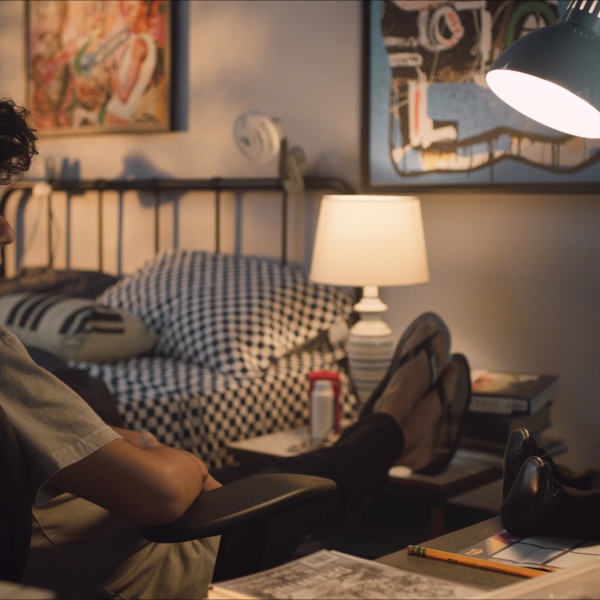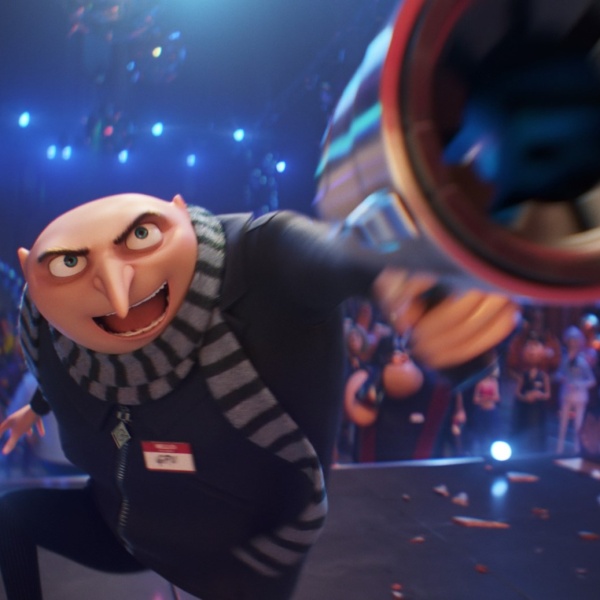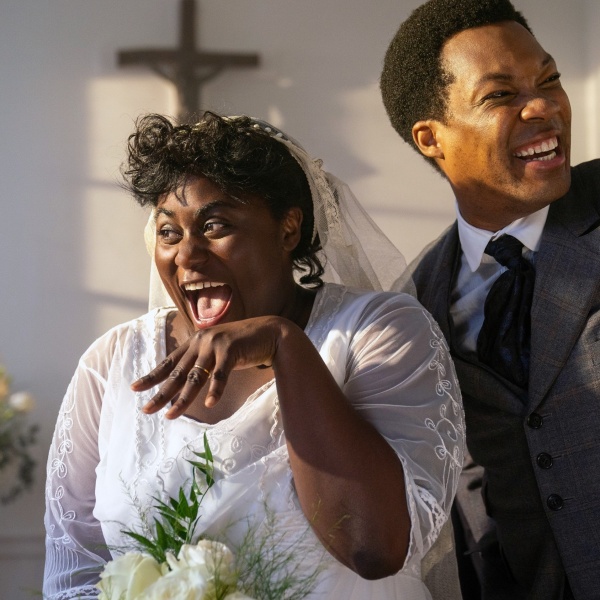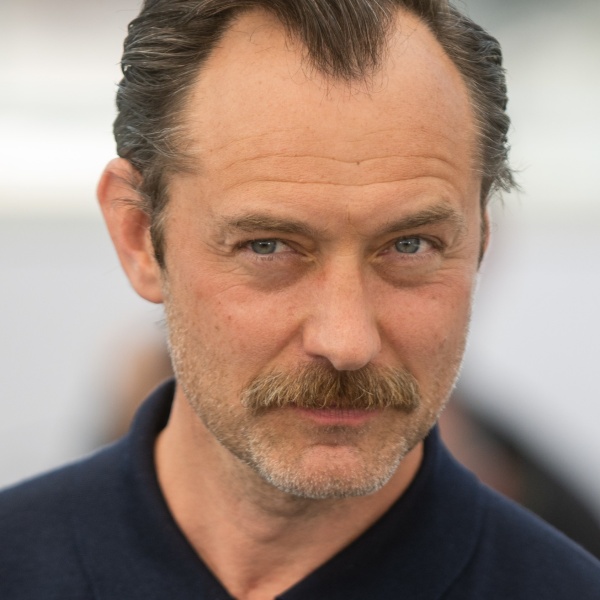
One of the best films at this year’s Sundance Film Festival was one that actually had its debut at last year’s TIFF. Richard Ayoade’s “Submarine” is a remarkably assured debut filled with dry humor, inventive visual wit and great performances. Adapted by Ayoade from a 2008 coming-of-age novel by Joe Dunthorne, the film follows 15 year old Oliver Tate (a perfectly cast Craig Roberts), a somewhat delusional teenager who believes himself to be a literary genius, (he reads Nietzsche and searches the dictionary for new words), but in actuality is a social outcast who gets bullied at school and doesn’t know how to talk to girls. Oliver develops a crush on classmate Jordana (a wickedly good Yasmin Paige), an emotionally guarded pyromaniac, who initially agrees to go out with him only to make her ex-boyfriend jealous.
Much of the humor in the film arises from the disparity between how Oliver views himself and how the world views him. He daydreams about how devastated his fellow classmates and family would be if he died, which most angst-ridden teenagers have probably done at some point. In an attempt to lose his virginity, Oliver tries to romance Jordana, (boxed wine, lit candles and heart shaped balloons around his parents’ bedroom) but ends up coming off more like a serial killer. “To us, and a wonderful evening of love-making,” he toasts sincerely. It may sound like a series of quirks but Roberts is wonderful in the role, perfectly nailing the character’s obliviousness and adolescent yearning. Paige plays Jordana throughout the first half of the film with a perpetual smirk but eventually reveals a more vulnerable character underneath.

Structured like a novel (and indeed, very much a coming-of-age tale in the “The Catcher In The Rye“mould), the episodic film is split into three chapters sandwiched between a Prologue and an Epilogue. This is no mere cute storytelling device (à la Quentin Tarantino or perhaps more obviously, Wes Anderson), the middle chapter of the film shifts its focus from Oliver and Jordana to the crumbling marriage of Oliver’s parents. And in doing so, the film loses some of its comic momentum during this section but this is where its heart is revealed. When Oliver falls head over heels for Jordana, his father (Noah Taylor) offers him a mixtape of love songs but adds that he’s “included some breakup songs towards the end. Just in case things don’t work out.” His mother (Sally Hawkins), bored with their marriage, starts seeing New Age life coach and former flame Graham (Paddy Considine) and Oliver tries to stop them to keep his parents together.
It’s hard to believe this is Ayoade’s first feature but he has been racking up credits behind the camera for years, as director of the hilarious cult series “Garth Marenghi’s Darkplace” as well as music videos for Vampire Weekend and Yeah Yeah Yeahs among others. But like many debut films, it wears its influences on its sleeve. For many, the similarities to Wes Anderson’s “Rushmore” will be impossible to overlook but it’s a shame to be forced to compare the two. Both films owe lots to Hal Ashby‘s “Harold & Maude” and feature daydreaming teenage protagonists who believe themselves to be a lot cleverer than they really are, both hopelessly in love. Unfortunately the similarities don’t end there and a few shots seem to be lifted directly from Anderson’s films (whether intentionally or not).
Thankfully Ayoade’s cinematic touchstones are far broader and “Submarine” seems to be rooted at least as much in the European films of the 1960s. Using handheld cameras, natural light and some amazing jump cuts gives the film a vibrant energy and visual style that recall the French New Wave and the British cinema of Lindsay Anderson. Occasionally the characters are centered in the frame, but more often they’re far less restricted than the ones in Anderson’s rigid compositions. The film is set in Wales in the 1980s though it took this writer almost an hour to realize it was a period piece and not just set in a quirky Anderson-ian present day. The Welsh suburbs provide a beautiful backdrop for the film with several scenes taking place on the overcast beach nearby. Meeting under the train tracks takes on a Fellini-esque dreamlike quality with only a gust of wind on the soundtrack.
The score by Andrew Hewitt, who also scored ’Darkplace,’ features dramatic string arrangements to underscore Oliver’s melodramatics. The film also features some mostly lovely, warm and lonely acoustic songs by Arctic Monkeys singer Alex Turner, which break from the film’s period setting but provide a nice emotional voice for the characters, even if it doesn’t always make logical sense. (It’s doubtful his dad would have given him a mixtape with Turner’s songs on it, especially since Turner hadn’t been born yet, but it works in the universe of the film.)
While perhaps not quite as wholeheartedly original as one hoped, the film is also incredibly far less derivative then some reviews have suggested. There’s a wonderful energy and ebullience to the film that is exhilarating in the picture’s first half and its briskness and pace is extraordinarily confident. The main “problem” with “Submarine,” and its a very difficult one to fault it for, is that as the picture takes on weightier themes in its second-half (divorce and emotional pain of many kinds being the crux) and therefore ceases to be as wildly entertaining and enjoyable as it is in its fast-paced, sunkissed and romantically invigorating first half. One supposes that this tonal/emotional shift could have been distributed a bit more evenly throughout, but one also gets the sense that Ayoade was simply just being faithful to the novel. Whatever the case, more egregious is the usually funny Paddy Considine. His spiritual guru character doesn’t quite work and comes across as something lifted out of a Jared Hess film (“Napoleon Dynamite“) and while the one-note character isn’t as broad or silly. He does seem slightly out of place with this refined world and could have been reigned in a few notes. All these slightly off second-half notes don’t derail the picture, but it does rob the viewer of the director pitching a no-hitter — which is the vibe you get in the pitch-perfect first half.
Still, as stated, “Submarine,” is easily one of the best and engaging debuts we’ve seen in some time. Oliver is repeatedly told throughout the film that “none of this will matter when he is 38.” But the film, told strictly from his point of view, takes his problems seriously. To a teenager, each crush is the great love of your life and “Submarine” plays these moments sincerely, wringing laughter and emotion in nearly equal measure. Ayoade is a natural storyteller and the film is a huge leap artistically from his much sillier, (though still brilliantly funny), TV series. Though comparisons to other films are unavoidable, that shouldn’t diminish the creativity on display here much. Hopefully Ayoade can continue to grow as a filmmaker and before too long his peers will be the ones being compared to him. [B+]






